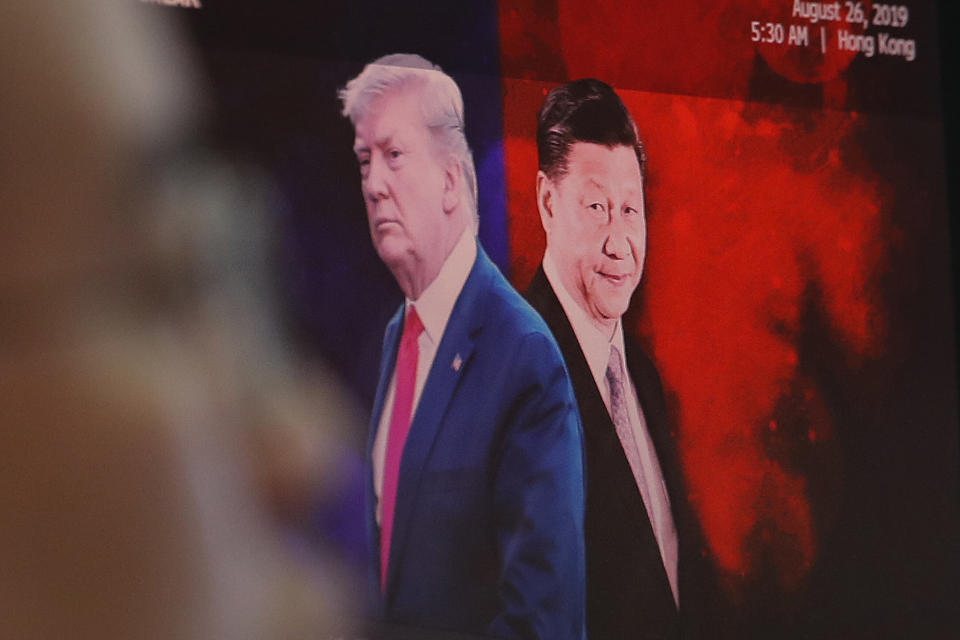If Trump hikes tariffs on China to 100% the stock market could crater: top strategist
Investors should just take to @RealDonaldTrump on Twitter to say, hell no to 50% to 100% tariffs on Chinese products.
The S&P 500 had approached its all-time high in Thursday’s trading session. Traders had some time to digest Federal Reserve Chair Jerome Powell’s comments at the latest FOMC meeting on Wednesday afternoon, and deemed them not as hawkish as first interpreted. Let the September rally rage on, right? Nope.
In the afternoon, a Grim Reaper from out of nowhere took many bullish souls.
This Grim Reaper goes by the name of Michael Pillsbury, a well-known hardcore trade policy hawk and White House advisor. “Does the president have options to escalate the trade war? Yes, the tariffs can be raised higher. These are low-level tariffs that could go to 50%t or 100%,” Pillsbury reportedly said at an event in Hong Kong, according to the South China Morning Post.
A White House spokesperson didn’t immediately return Yahoo Finance’s request for comment on Pillsbury’s statements. An email to Pillsbury was not immediately returned.
More China tariffs would be debilitating
Stocks quickly rolled over Thursday after the comments came to light, finishing near the lows of the session. As Sevens Report Research founder Tom Essaye wrote to clients, the algos that scan the internet for headlines took control after Pillsbury’s comments. The machines were right to send team Trump a clear message that the last thing anyone needs are 50% to 100% tariffs on China’s imports.
It would be truly debilitating to a U.S. economy already wading through a manufacturing recession, cooling capital investment by big companies and slowing job growth due to Trump’s current tariffs.
“Yeah I think it’s possible at some point [those much higher tariffs), but I don’t think it would happen before the 2020 election,” Belpointe Asset Management Chief Strategist David Nelson said on Yahoo Finance’s The First Trade. Nelson thinks markets and the economy would be severely hurt by tariffs at those levels. “There are consequences of a trade war, but it has become a populist message on both sides of the aisle. Both sides seem to be who is tougher in this.”

“It certainly hurts them [China] more than it hurts us,” Nelson added, referring to Pillsbury’s comment about the potential of higher tariffs. “It’s unfortunate but at some point in time we have to deal with this. We can capitulate, I am sure that’s what China wants us to do. I don’t think America is going to do that.”
The outlook for tariffs could certainly be viewed upon as excessive.
The Trump administration will have hit $550 billion in Chinese goods with either 15% or 30% tariffs by the end of the year. That’s based on expected tariff increases that kick in this October and December.
Brian Sozzi is an editor-at-large and co-anchor of The First Trade at Yahoo Finance. Follow him on Twitter @BrianSozzi
Read the latest financial and business news from Yahoo Finance
Why Target is shocking everyone and putting Amazon on notice
Why Macy's should rattle investors by cutting its big dividend
Follow Yahoo Finance on Twitter, Facebook, Instagram, Flipboard, SmartNews, LinkedIn, YouTube, and reddit.


